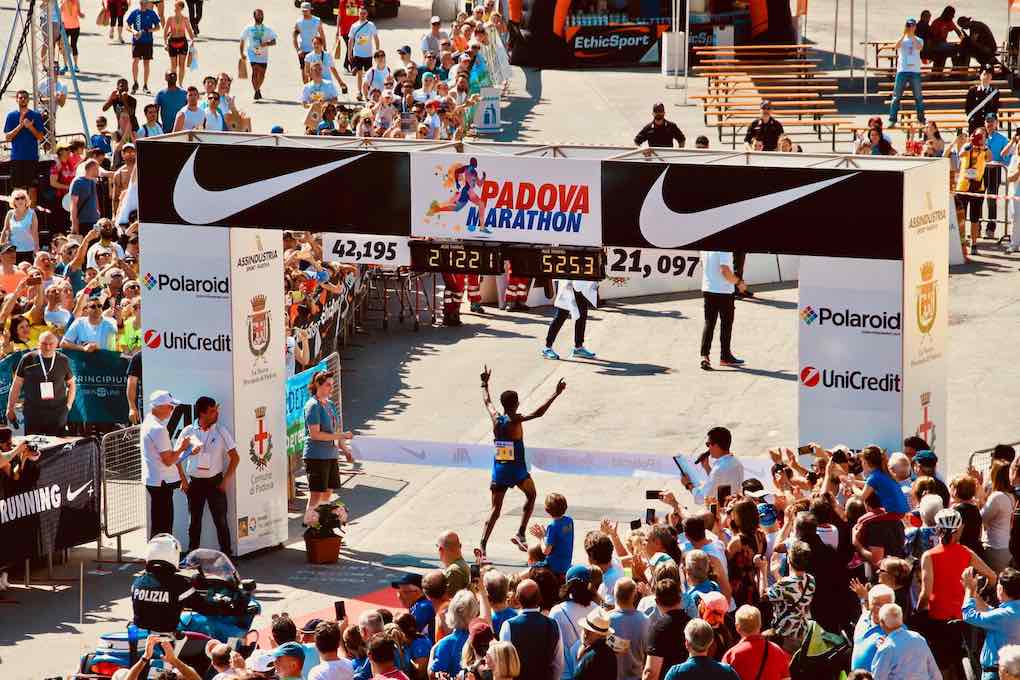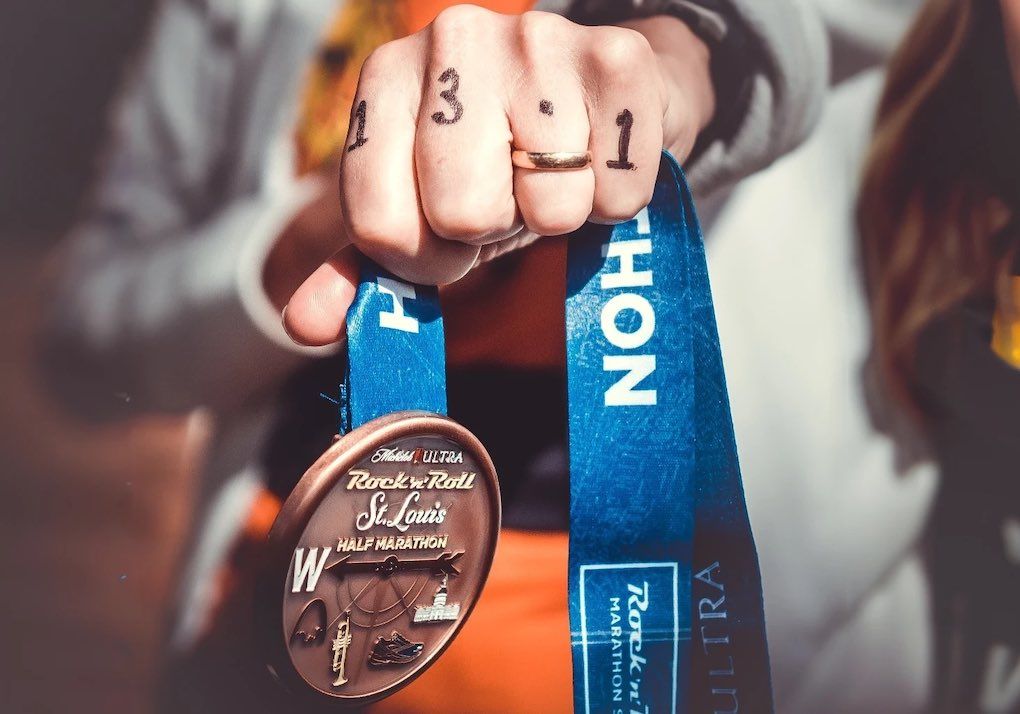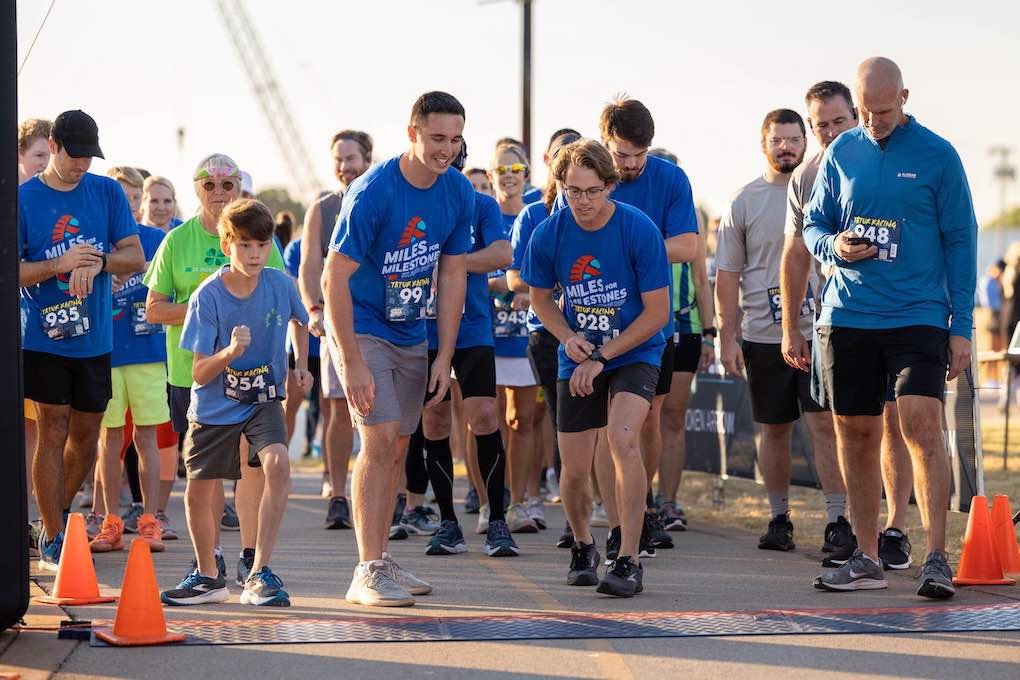A marathon is 26.2 miles, and large race-result studies put the typical finish around four and a half hours. Chase the wrong “average” and you can hit the wall early, even if training went fine. A smart benchmark keeps your pacing, fueling, and expectations in the same lane.
We reviewed large result sets and cross-checked the official distance with World Athletics. Then we translated the numbers into pace ranges and quick self-checks you can run this week.
You’ll see how average times shift by age and sex. Then you’ll estimate your finish from a recent 5K, 10K, or half marathon. Use that number to pick a pace plan you can hold past mile 20. Ready to benchmark your time?
TAKEAWAYS:
The average marathon time in 2023 is 4:19:23, regardless of age and gender. This result will bring you above 50% finishers of the most popular running events in the US.
A marathon is a long-distance race of 42.195 kilometers or 26.2 miles. It has become increasingly popular, attracting both beginners and competitive runners worldwide.
26.2 miles is the severe yet fair challenge of the homework you have or haven't done. You will need more than your natural physical gifts to beat the average marathon time for your age. Preparation is critical—the more you train, the less time it will take to run the marathon.
Why “average marathon time” numbers don’t match
An average marathon time looks simple, but the number depends on what got counted. One dataset may use only big-city races, while another mixes in small local events. Some sources include only official finishers, and others filter out walkers or races with long course cutoffs. That’s why two “average” times can both be reasonable and still disagree.
Averages also hide the spread. A few slower finishers can pull the mean up, while the median (the middle finisher) often reflects what a typical runner did. If a source does not say mean vs median, treat the number as a rough benchmark, not a goal.
To make the comparison useful, match the benchmark to your situation:
- Start with the right group (age and sex).
- Factor in the course and conditions (hills, heat, wind, and crowding).
- Know which clock you’re using. Chip time (start mat to finish) can differ from gun time.
One line to remember: an average is context, not a prediction.
If you’re choosing a goal time, begin with your recent half marathon, 10K, or long-run pace, then account for race-day reality. Fueling stops, bathroom breaks, and late-race fatigue are normal, especially in a first marathon. Planning for a small slowdown and an even pace can keep the last 10K from turning into a run-walk grind.
Average marathon completion times by Age and Sex
The average marathon race finishing time for runners in different age groups and gender vary widely. The data states that younger runners run faster than older, and men outperform women.
Male runners reach peak performance is at the age of 35-39, and females at 25-29. This trend is found in average marathon times for genders, and world records too.
*The average marathon times from the table are based on the finishing times of the six biggest races in the world: Chicago, Boston, New York, Berlin, London, and Tokyo marathons of 2022.
The gap between the fastest and slowest runners in a given age/gender group can be substantial, so it is essential to remember that these averages are just that — averages.
Regardless of time, after crossing the finish line, runners get Custom Race Medals that they can engrave the finish time on and put on a wall.
Setting realistic goals and not comparing your finishing time with others is also essential, as everyone is unique and has different training experiences and abilities. Complete the race without switching to walking is an example of a worthy goal for your first marathon.
Average marathon completion times by experience
The primary determinant of the time it would take you to run a marathon race is your experience with running. Unlike short-distance running, your marathon time is less dependent on your natural capabilities and more on your training background.
What is a good marathon time for beginner runners?
The average marathon finishing time for beginner runners is 4:02:33-4:36:20. It's an excellent result for your first marathon. You will overtake 20% of the finishers and complete the race among 80% of the fastest runners. The necessary pace to make it is from 9:15 to 10:30 minutes per mile.
You must log at least 30 miles distance weekly for several months to run a marathon with the average beginner's time. Although, don't worry If the 26.2 miles would take you longer. Making your first race to the end, regardless of the time it takes, is a great achievement that not everybody can do.
Average marathon time for intermediate runners
The average marathon finishing time for intermediate runners is between 3:23:25 and 4:02:32. You will overtake approximately half of the participants with this marathon time. The pace you must keep during the race is 7:40-8:35 min/mile.
Experienced runners have been training consistently for several years and have completed multiple 26.2-mile races. A sub 4 hours is an excellent marathon time that any runner can be proud of. Logging at least 35-40 miles distance per week and following a comprehensive running program is a must to achieve this result.
Average marathon time for professional runners
The average marathon finishing time for professional runners (not elite runners) is 3:02:30-3:23:25. This result will bring you to the top 10% of fastest runners of an average public race. The necessary pace is between 6:58 and 7:45 minutes per mile.
With this result, professional runners can lead their age group. The runner should follow a dedicated training program and consistently improve their performance over the years.
Effective world marathon records
The effective world record for the men's marathon is 2:01:09, set by 37-year-old Eliud Kipchoge from Kenia on September 25, 2022, during the Berlin Marathon.
The current world record for women's marathon is 2:14:04, set by 25-year-old Brigid Kosgei from Kenia on October 13, 2019, during the Chicago Marathon.
So, the elite runners' marathon race time is under 2:30:00, which equals less than 5:44 minutes a mile pace.
Average marathon time at Abbott World Marathon Majors
The Marathon Majors are the six most prominent and respectful 26.2-mile races worldwide. The number of applicants exceeds the number of race slots available, which sold out within days after the previous running event. Part of the participants get a guaranteed entry by qualifying for time standards for their age, and another part wins in the ballot. The six most prominent marathon races are hosted in the United Kingdom, Germany, Japan, and the US.
The Boston Marathon is the fastest because it has the most strict admission rules. The New York City Marathon is the most crowded race; thus, the average finish time is the longest.
How to predict your marathon finish time?
Predicting marathon finishing time is more complex and imprecise than shorter distance races. There are a lot of factors to consider, and anything can go wrong at any time. Although there are two approaches to calculate your marathon time that are based on your:
- Target marathon pace (best for experienced distance runners)
- Past half-marathon finish time (best for first-time marathoners)
Using a target marathon pace prediction table
If you are sure about your capabilities and the calculated pace you can keep for 26.2-mile race, find your estimated marathon finishing time in the table below. The mile splits will help you maintain on track.
Using your best half-marathon time
You can't calculate your marathon time by just multiplying your best 13.1-mile distance time by two. The marathon race demands much more training; thus, you must discount your ambitions. The table below is based on Jack Daniel's VDOT methodology for marathon finishing time prediction. Find your best half-marathon time in the left column and get an estimated marathon time and pace on the right.
In my experience, you should discount the calculated marathon time even more. For instance, if you run 13.1 miles in 1:40:00, set a 3:40:00 time goal for your next marathon race.
Prediction of your finish time is not an exact science, but by trying these approaches, you can get a good idea of what to expect and how to distribute your effort. Regardless of your targeted marathon time, listen to your body, train consistently, and be realistic about your goals.
Factors affecting marathon completion time
The time taken to complete a marathon depends not just on physical ability but also on fitness level, training regimen, course terrain, and weather conditions.
#1 Fitness level. A runner's fitness level is a significant factor that affects the time it takes to complete a marathon. The fitter you are, the faster you can run and the less time it will take to finish the race.
#2 Preparation. A proper training regimen that includes long-distance runs and strength training can help improve your marathon finishing time. The more you train, the better your body will handle the demands of a 26.2-mile race, and the faster you can run.
If you have been consistently training and exercising, your body will be better equipped to handle the physical demands of a marathon.
#3 Course terrain and weather conditions. The course terrain and weather conditions can also affect marathon race completion time. Running on a hilly course is generally slower than on a flat course. Hot weather conditions can slow runners as they must expend more energy to regulate their body temperature. Training in the conditions similar to your race adapts your body and make you less dependent on conditions.
#4 Age and gender. Unlike other factors, age and sex aren't something we can affect, although average marathon finishing time depends on them. So, consider them when setting your race goals.
Tips for improving marathon completion time
These tips can improve your marathon completion time and ensure an enjoyable race experience. Preparation and consistency are critical; you must set realistic goals and listen to your body.
Train consistently. Comprehensive preparetion is crucial to improving your marathon finishing time. A proper training regimen that includes reasonable weekly mileage, strength exercises, and versatile training can improve your endurance and running form. So you can complete the 26.2-mile race faster and easier.
Incorporate long run and speed work. Including weekly long-distance runs and interval training in preparation help improve your running speed and overall race performance. These types of exercise are especially helpful for marathons as they strengthen your muscles, improve cardiovascular fitness, and increase endurance.
Stay hydrated and fuel your body correctly. Proper hydration and nutrition are essential in keeping your body fueled and performing at its best during a marathon race. There is no rule of thumb; each runner should discover what amount is "proper" for their body during training. Make sure to drink plenty of water and consume carb-rich foods leading up to and during the race.
Adjust your pace to the course terrain and weather conditions. When training for a 26.2-mile race, it is vital to consider the course terrain and weather conditions. If the course is hilly or the weather is hot, discount your pace to reach peak performance and decrease your marathon finish time.
Get adequate rest. Adequate rest allows your body to recover quicker and perform at its best, eliminating fatigue and injuries. Make sure to get at least 7 hours of sleep and take enough rest days during training. Stretching and sauna can also fast-track your recovery.
Set realistic goals. A too-fast start will drain your energy and tire your muscles too early. Pace yourself from the start and resist the temptation to speed up when other runners overtake you. Marathon race is not only about physical fitness and training but also about finding your energy-efficient mode and reasonably distributing your effort on the distance..
Final Thoughts
Completing a marathon is a significant accomplishment that requires dedication, preparation, and hard work. The time it takes to complete a marathon race can vary significantly based on your running background, fitness level, age, preparation, course, weather, and many other individual factors.
Whether you are a beginner or an experienced runner, the most important thing is to have fun and enjoy the experience. By setting achievable goals, training consistently, and listening to your body, you can complete a marathon race with pride, regardless of the time it takes.
This article is a part of our “Average Running Time” series. For more information about the average time it takes to run different distances, see the other articles from the series:
Average Time to Run a Mile
Average Time to Run 3 Miles
Average Time to Run 10K
Average Time to Run Half-Marathon
FAQs on marathon times
What does “average marathon time” actually mean?
Most sources use the average finish time of all runners in a set of races. It can be a mean (true average) or a median (the middle finisher). Median is often more useful because a few slow or fast times can pull the mean.
What’s a realistic finish time goal for a first marathon?
A realistic goal is the one that matches your current training, not the overall average. For many first-timers, finishing strong and steady matters more than a specific number. Pick a goal based on your long runs, your easy pace, and how well you recover.
How do I use average marathon time to choose a goal pace?
Start with a “finish happy” pace, then adjust after two to three longer long runs. If you want a time-based goal, convert it to pace and practice that effort on parts of long runs. Example: a four-hour marathon is about 9:10 per mile (5:41 per km), not counting stops.
Why does my marathon prediction look slower than my half marathon pace?
The marathon punishes small pacing mistakes and weak fueling. If your long runs top out at 10 to 14 miles, your endurance may not match your half speed yet. A common rough check is: marathon time is often a bit more than double your half time, plus extra minutes as fatigue builds.
Should I compare my time to the overall average or my age group?
Age group comparisons are usually more fair because running performance changes with age. Overall averages mix first-timers, walk-runners, and experienced racers. If you want one number to track progress, compare your own races on similar courses.
Is it normal to run-walk and still finish “around average”?
Yes, run-walk is a common strategy and it can help you manage effort and fueling. Short, planned walk breaks can keep your pace steadier late in the race. Practice it in long runs so race day feels familiar.
When should I stop training and get medical help?
Stop and get urgent help for chest pain, fainting, severe shortness of breath, or one-sided weakness. Get checked soon for pain that changes your stride, swelling that keeps getting worse, or a fever with muscle pain. When in doubt, skip the workout and talk to a clinician.



